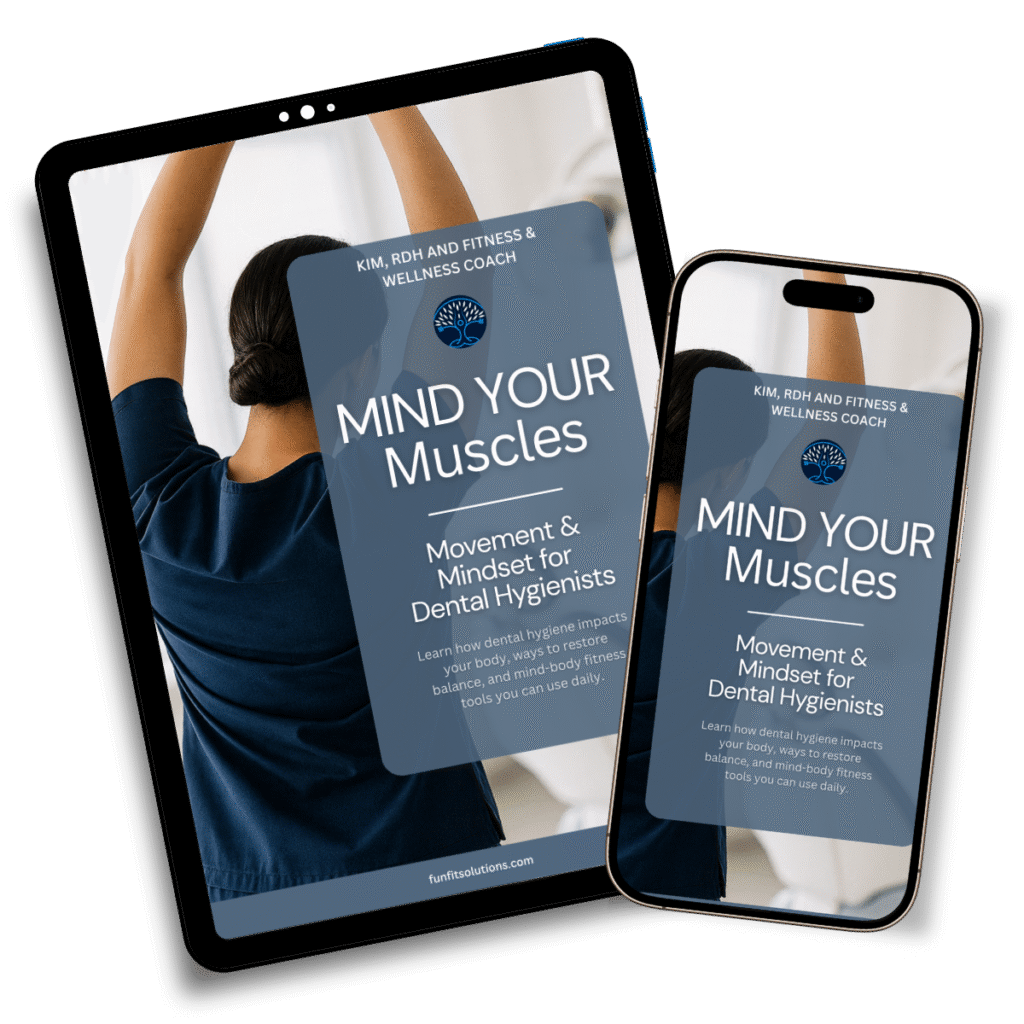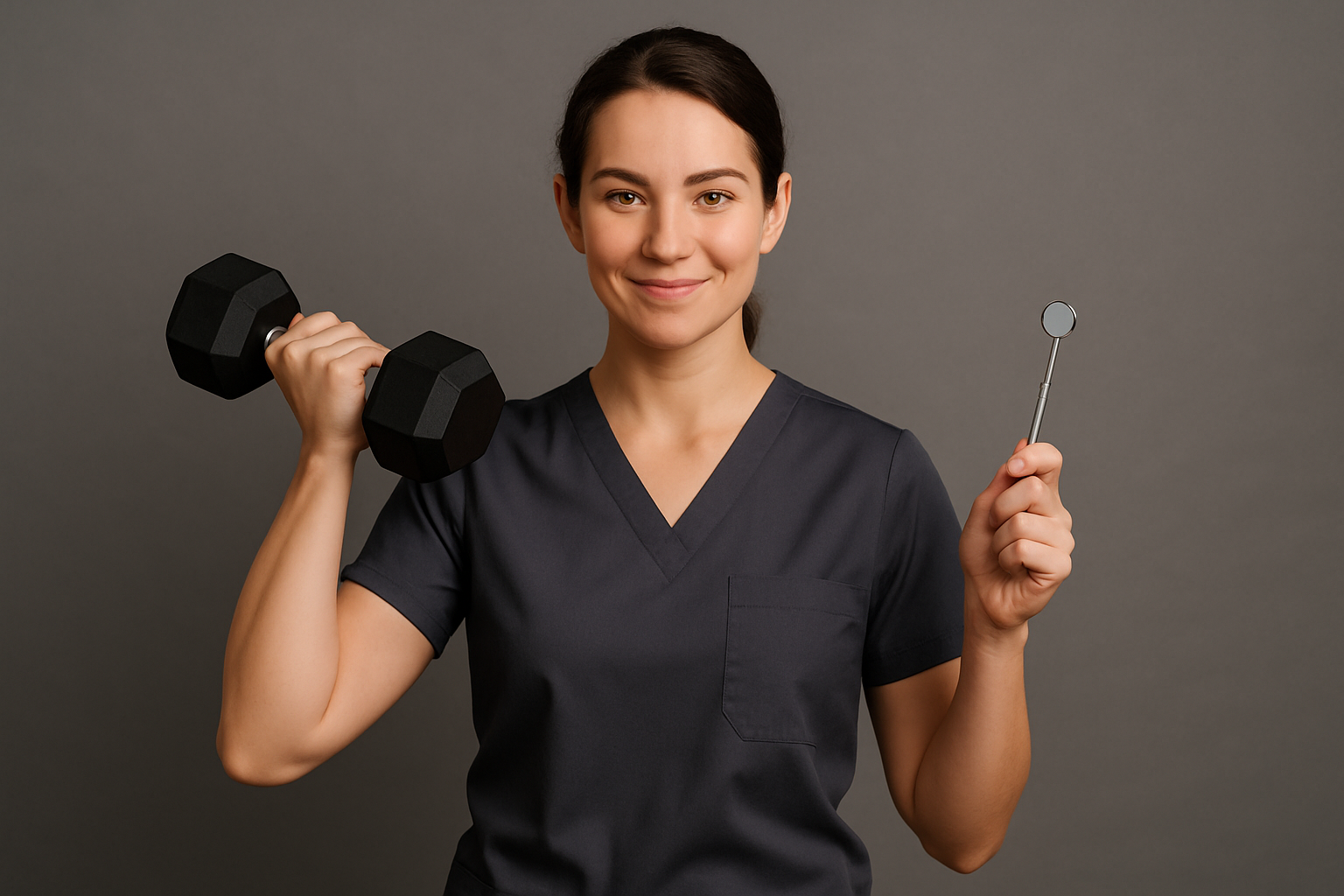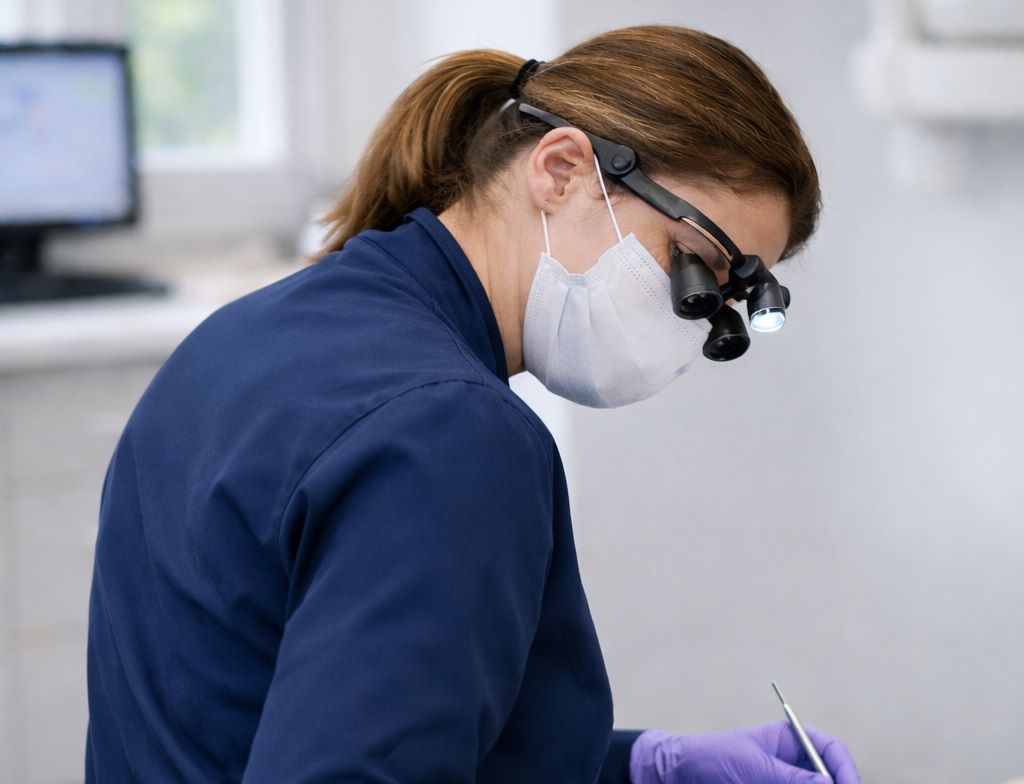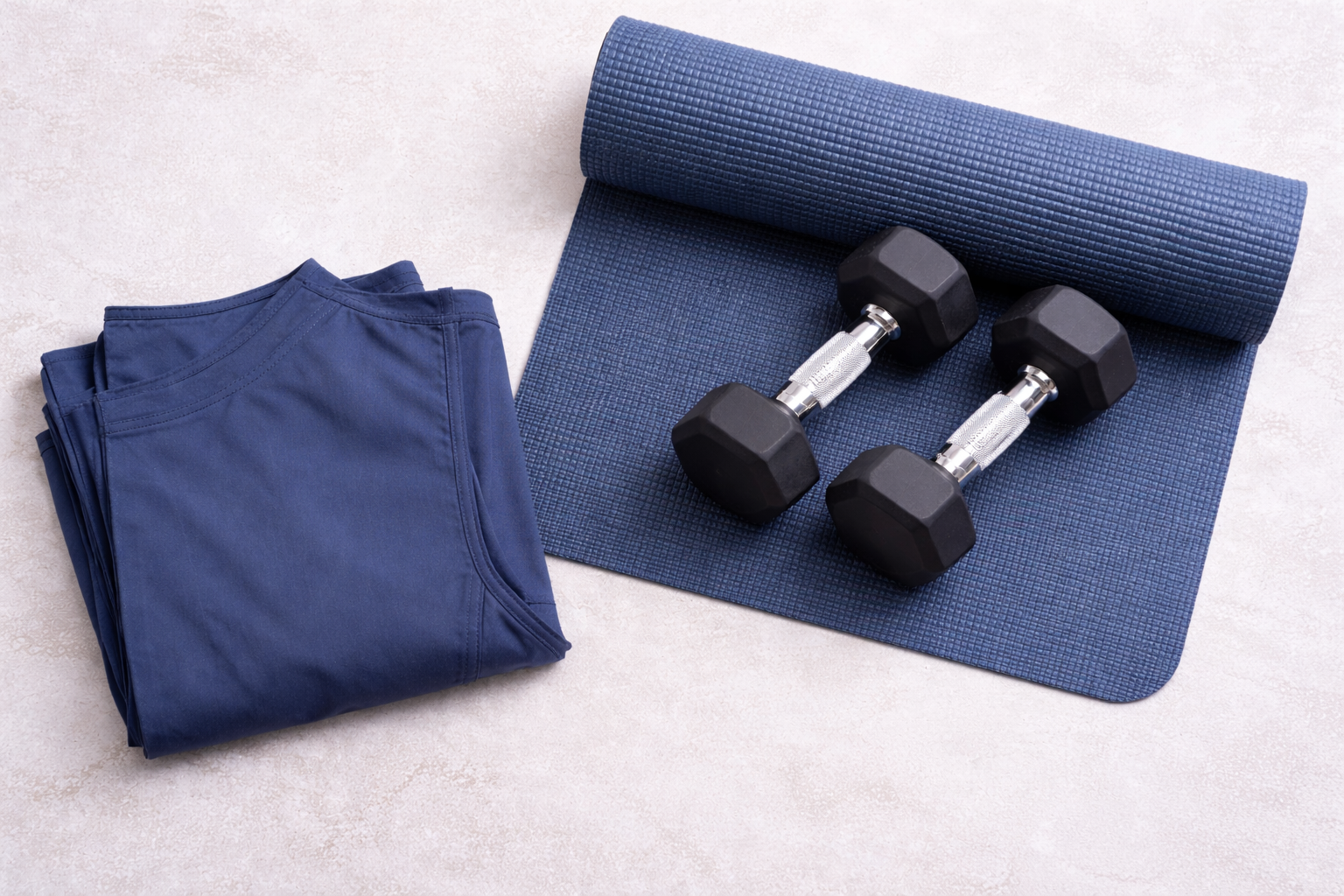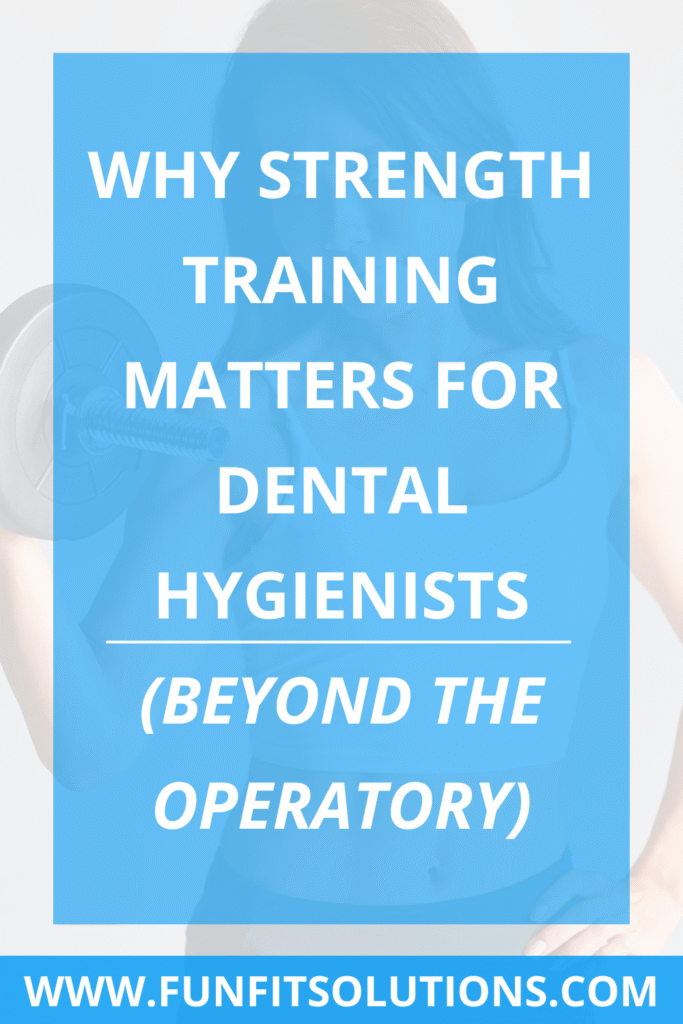
Early Career Pain Taught Me the Value of Strength Training for Hygienists
There was a stretch of time, early in my career, where every Monday, I’d get home from my 12-hour day, drop my bag, and just sit on the couch with my lower back killing me. I wasn’t out of shape. I was lifting weights regularly. But somehow my body still wasn’t prepared for the repetitive, awkward positions of dental hygiene.
That was when I started to realize general strength training (with occasional stretch sessions) wasn’t enough. I needed strength training designed to balance out the muscle imbalances dental hygienists face every day.
Though it took a while to implement, that realization completely changed how I train and how I practice. And it’s why I’m so passionate about sharing this with other hygienists who feel like their bodies are breaking down.
The truth is, hygiene is a demanding career on our bodies. We know this. We knew it going into it. But one of the best ways to protect yourself isn’t another ergo loupe suggestion or saddle stool recommendation… it’s strength training.
Why Strength Training Is So Important for Hygienists
1. It balances muscle imbalances in dental hygienists
Dental hygiene makes some muscles overactive (like chest, shoulders, and forearms) while others get underused (like the upper back and grip muscles). Over time, this creates imbalances that show up as pain or even injury. Strength training helps restore balance, giving your weaker muscles the support they need.
2. Strength training builds resilience against repetitive dental hygiene movements
Scaling, polishing, retracting—our job is so repetitive! Strength training makes your body more resilient to those motions, so you don’t wear down as quickly. The stronger your muscles are, the less strain and “pull” you’ll feel on your joints and connective tissues.
3. Strength training supports posture for dental hygienists (inside and outside the operatory)
Posture isn’t about sitting up “perfectly straight” all day. Good posture means having the strength to hold yourself in healthy alignment as you move without constant effort. (Because your body should support you, not the other way around!)
Strong back, core, and glute muscles give you that support so your body can do the work without collapsing into pain.
4. It helps dental hygienists avoid career-ending injuries
So many hygienists cut their careers short because of pain they can’t work through. Strength training helps prevent those injuries from escalating so that you can keep practicing comfortably.
5. Strength training benefits mental health and prevents burnout in dental hygiene
Let’s not forget: strength training isn’t just about the physical body. Lifting, moving, and feeling physically capable translates to confidence and stress relief. For hygienists navigating burnout, that boost can make a big difference.
Where to Start
You don’t have to live in the gym or overhaul your entire routine to feel better. Even a few mindful minutes a day—done with purpose and the right movements—can change how your body feels at the end of a long week.
If you’re ready to start supporting your body in a way that actually fits your life as a hygienist, my eBook, Mind Your Muscles: Movement & Mindset for Dental Hygienists, walks you through exactly how to do it.
It’s packed with mobility moves, strength exercises, and mindfulness tools created for real hygienists with real schedules—so you can move, feel, and work with more ease.
👉 Grab your copy of Mind Your Muscles here!
The Takeaway
At the end of the day, it’s not the loupes, the saddle stool, or the wrist stretches that keep us in this career. It’s strength.
Strength training is how you make sure your muscles pull their weight, so the job doesn’t pull you apart.
Strength is prevention. Strength is longevity. Strength is the difference between thriving in hygiene or burning out in it.
Do you ever leave work feeling like your neck and upper back worked harder than your hands?
If long clinical days leave your body feeling tight and your mind running on empty, this eBook was made for you.
And don’t worry—it’s not another “fix your ergonomics” lecture. 😉
